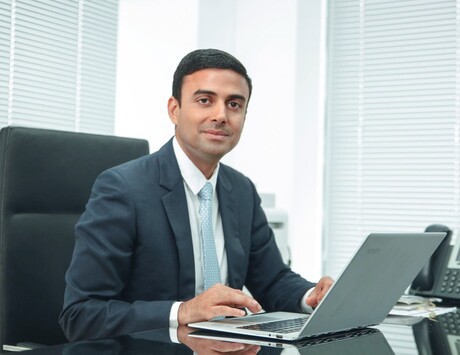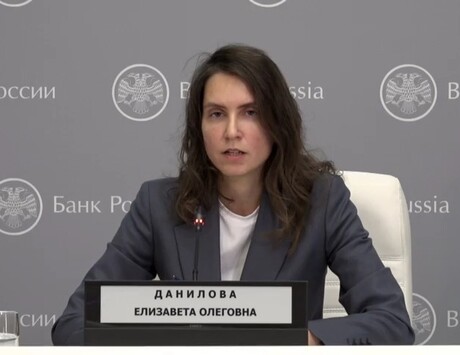Later this week, the Russian Prime Minister will be in Brussels – to which you might well respond wearily, "Big Deal". EU-Russia meetings at this level take place every year and soon become non-events, even if they avoid descent into recriminations. This time, however, a real "Big Deal" might not be far off the mark. Russia has spent the past few months signalling that it would like to see relations with the EU shifting from the tetchy political arena to Russia's economic modernisation, and the Prime Minister will have with him a large delegation of ministers and business people to that end.
As always, there will be many obstacles to the sort of hi-tech investment Russia is after – not least the recent re-conviction of the country's erstwhile richest man, Mikhail Khodorkovsky, which, to put it mildly, dampens confidence in the business climate and Russian justice. But perhaps the biggest obstacle will remain unspoken. The outside world, but especially Europe – and within Europe especially Britain – has a problem with Russia's Prime Minister, Vladimir Putin.
His image is that of a hard man, a foe of democracy who has speeded his country back to Soviet-era restrictions and Soviet-era ambitions, and it reinforces all the historical fears and suspicions harboured by Westerners about Russia. Where many people in the West see someone only a little short of a dictator, keeping his freedom-loving fellow countrymen in thrall, however, this is not how he is seen by most Russians.
In his homeland, he has managed the unlikely feat of remaining hugely popular through two terms as President and almost one as Prime Minister, an economic crisis, a series of bomb attacks, several natural and man-made disasters, and a small, not entirely successful, war. Rarely in living memory can there have been such a discrepancy between the image of one leader at home and abroad.
Why is there such a gap? The answers expose some of the outside world's many misapprehensions of today's Russia, as personified by Vladimir Putin, and they fit loosely into two categories: who he is and what he has done (or thought to have done) with his power.
Among the darkest shadows that hang over Putin in Western eyes is his career in the Soviet KGB – and his subsequent brief period as head of its post-Soviet successor, Russia's FSB. This past has dogged him ever since Boris Yeltsin unexpectedly threw him the reins of power on the last day of 1999. As President, his name is rarely mentioned in foreign reports without an allusion to his work for the KGB.
Such a judgement makes two assumptions, neither of them entirely valid in Russia. The first is that a KGB career was of itself negative. In Soviet times, KGB officers were seen in many quarters as honourable and intelligent – more so than the common or garden police – and the service set high standards for its recruits. Influenced in part by films showing James Bond-style derring-do, but also as he saw it by the demanding honour code, Putin aspired to join the KGB from an early age – and he was not immediately accepted. As a school-leaver, he was told to go away and get a university degree first (which he did).
The other assumption is that "once a KGB man, always a KGB man" – that the culture and the priorities stick. Putin spent 16 years in the KGB, the last few in what was East Germany. Yet the level of his appointments suggest that he was nowhere near the top of the tree, nor seen as likely to get there. Nor was the KGB the elite corps it had been in its heyday. Even so, for a dyed-in-the-wool career officer, Putin did something highly unusual. After the fall of the Berlin Wall, but with the Soviet Union's collapse not yet in sight, he upped and resigned, choosing to work for one of the most progressive and anti-KGB leaders in the whole of Russia: the mayor of Leningrad (soon to become St Petersburg), Anatoly Sobchak.
Now you might argue that he did this as part of an undercover operation orchestrated by the KGB, though there is not a shred of evidence for this. More realistic would be to see here a man who needed to feed his family and understood that the KGB no longer offered a steady job with prospects. But he could have chosen many less radical masters than he did. In deciding to serve Sobchak, Putin actively changed sides.
Ah yes, his detractors say, but when he became Russian president, he brought in all his mates from the KGB and so turned post-Soviet Russia into a latter-day KGB state. By their friends shall ye know them. But this is not quite true either. Anyone who finds himself propelled to the top job without a power base needs reliable people around him, and Putin's coterie was bound to include ex-KGB men. And it should be noted that when Putin came to pick a successor, he did not take what might be seen as the "safe" KGB option. Dmitry Medvedev has no background in the security services at all, and not even his worst enemies allege that he has.
Most Russians do not see Putin primarily as an ex-KGB man – and those who do would not all regard it as a negative. They see him rather as the feisty President who brought order to the chaos left by Yeltsin, ensured that their salaries were paid, and presided over the fastest rise in living standards Russia has ever experienced. However cynical Russians are today, very few would argue that they are worse off now than they were before 1992 – or even 2000. "It's the economy, stupid," is as valid in Russia as it was for Americans when they elected Bill Clinton.
What is more, Russians generally like Putin, and not just because they see him as a strong man, who does not allow himself, or Russia, to be messed around with by arrogant foreigners. They like the fact that he behaves and reacts as they do: sometimes crudely and unguardedly. They acknowledge a shared experience: almost 30 years of constant change and unpredictability from which his presidency brought a period of welcome respite.
And they like his summer-holiday showmanship – last year's yellow-Lada road-trip across Russia's Far East; the hunt for the Siberian tiger, the bare-back riding through the wilderness, the polar bear. His fantasies in many respects match theirs. This may be wearing off: Blueberry Hill sung to a celebrity-filled hall may have been a stunt too far, even for charity. But Putin – a boy from a modest background, whose elder brother died during the Siege of Leningrad, who grew up in a "communal" (shared) flat, and became a judo ace to thwart school bullies – had lived a life that struck a chord with his fellow-countrymen. Like them, he was a product, and a survivor, of great change.
Even those who can just about stomach who Putin is and understand the transitional Russia that made him, nonetheless condemn the way in which they believe he has used his power. The charge sheet is long, and not all his detractors would sign up to every clause, but here is a summary. He contrived, they say, to reignite the conflict with the Chechens, then waged it mercilessly, first to secure his election as President in 2001, and then to show Russia who was boss. He backtracked on the democracy and human rights that Yeltsin had introduced, closing independent television channels, banning the activities of many non-government organisations, sanctioning the murder of critical journalists (Anna Politkovskaya, for one) and outlawing many pro-democracy demonstrations. An autocrat, he set out to build a structure of power, known as the "vertikal" or pyramid, that would centralise all power with him. To that same end, he abolished direct elections for local governors.
He would brook no opposition to his personal power, which is why he had the oligarch and head of Yukos, Mikhail Khodorkovsky, imprisoned. He authorised the pursuit and murder of enemies overseas (a prime example being the polonium poisoning in London of Alexander Litvinenko). His great ambition was to reconstitute the Soviet empire – hence the regular winter gas disputes with Ukraine and the 2009 war with Georgia, which were all about enforcing an exclusive zone of influence. In sum, he was a Soviet leader in spirit, who wanted nothing better than a return to fighting the Cold War.
Now, it should be said at the outset that the prevailing Western view of many of these actions, and the prevailing Russian view, are quite different. Where we might see heroic Chechens pressing their just claims for nationhood against an imperial enemy, many Russians see a dangerous nuisance that can only be tamed inside Russia. Oligarchs, but especially Jewish oligarchs (which is very many) are highly unpopular in Russia and did not need Putin to make them so. The idea that Khodorkovsky would be electable in a contest with Putin, however free and fair the terms, is simply ludicrous. The same applies to the indefatigable opposition campaigner and former chess master, Gary Kasparov. And where many Westerners saw a glorious era of freedom under Yeltsin, many Russians experienced material chaos in a country humiliated by its drunken leader. After this, Putin was seen as restoring not only order, but national dignity.
Nor would most Russians see another side to the gas dispute with Ukraine or the Georgia war. Like it or not – and many foreigners chose not to like it – Russia had a defensible case in both instances. Ukraine failed to make contracted payments and Georgia attacked the Russian-backed enclave South Ossetia. That a less clumsy approach might bring the desired result with less cost, both in money and reputation, is something post-Soviet Russia seems only now to be starting to learn. Putin was lauded for doing the right thing in defending vital national interests.
In other respects, the defence of Putin is more complicated. This is partly because there are genuine disagreements about human rights, and an aggrieved sense in Russia that many Westerners apply a double standard. Partly, too, because – in, for instance, the killing of journalists or political foes, direct blame may not attach to the President, but responsibility for creating a certain climate of permissiveness surely does.
Yet the charge that Putin is anti-democratic and power-hungry – for Russia and for himself – represents a very particular misunderstanding. Looked at from Russia, there is no way in which Putin is expansionist. His remark about the collapse of the Soviet Union being "one of the greatest geopolitical catastrophes of the century" reflected a widely shared view among those Russians who remember when the Soviet Union was a superpower. It did not mean that Putin was out to rebuild the Soviet empire. On the contrary, he has signed border treaties with almost every one of Russia's neighbours. The task he inherited from Yeltsin was to accustom one-time Soviet citizens to being Russians again.
As for the suggestion that he is personally hungry for power, this is not what his – only moderately successful – attempt to create a "vertical" of power denoted. He inherited a situation in which administration of all kinds was fragmenting. His centralising efforts were widely interpreted abroad as self-aggrandisement. But they reflected not the strength of state and presidential power, but its weakness.
Any personal lust for power is also belied by Putin's choice three years ago. Despite his enormous popularity, he rejected a proposal from the Duma (Russia's parliament) to amend the constitution so that he could stand for a third presidential term, insisting that if the President flouted the constitution, this would be a defeat for the rule of law. Some insist that he has continued to rule vicariously through his protégé, Medvedev, but if this was ever true, it is becoming less so with each passing month. In theory, he could stand for another term in next year's presidential elections, but the hands-on managerial nature of the prime ministership may well appeal to him more.
So there is a defence of Putin to be made. And it is, rightly, argued that – unlike certain regional officials – he had no need to rig an election, because he could sail to victory. But it has also to be said that not all Russians feel an affinity with their erstwhile President and now prime minister. A visceral hatred resides in the more rarefied echelons of the intelligentsia, reminiscent of that felt by some Britons for Margaret Thatcher. Many of their misgivings match those of sceptical foreigners – on democracy and the rival claims of freedom and stability – but there is also a strong streak of snobbishness.
They dislike his brand of Russian, which they feel to be plebeian and coarse. They find it hard to understand why someone they regard as a social and intellectual inferior should represent them and their country in the world. They make common cause with those in the West who regard Russia as a bully smarting from post-imperial nostalgia, and their negative views reinforce each other.
Such judgements will be harder to sustain if Dmitry Medvedev becomes a second-term President, as is possible in elections next year. And if he does, it will probably be forgotten that without the patronage of Putin, the all-blogging, all-Tweeting lawyer from a secure family of academics would not be where he is. The post-Soviet transition will finally be complete.



